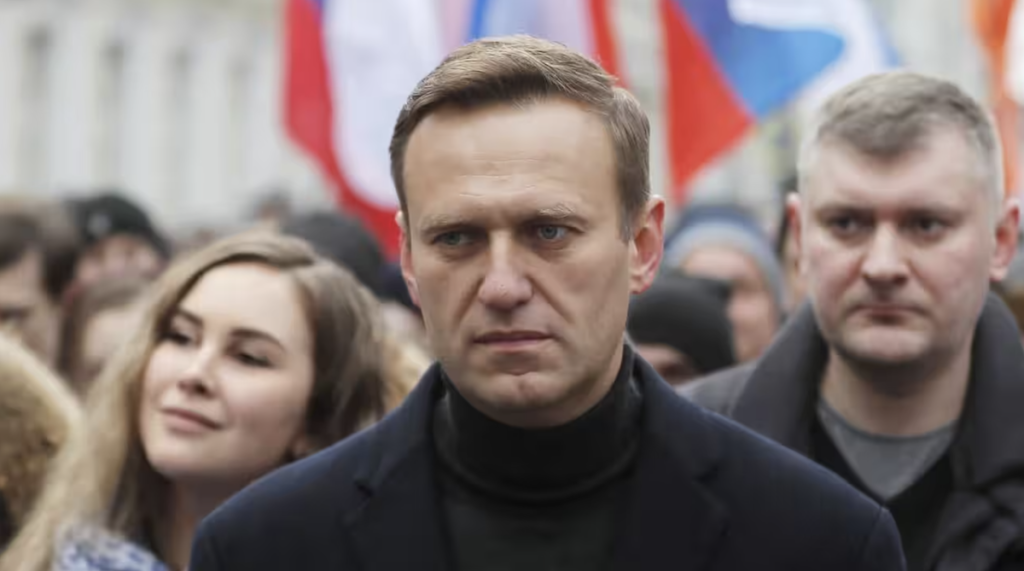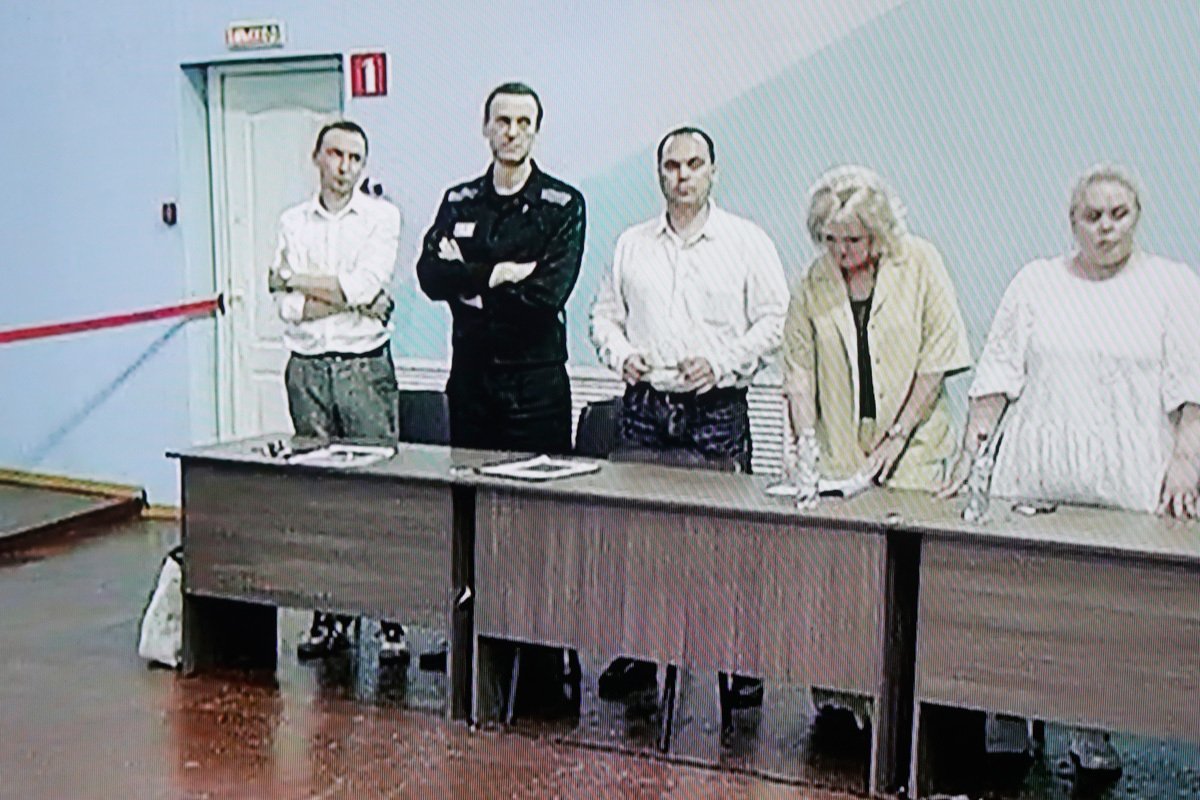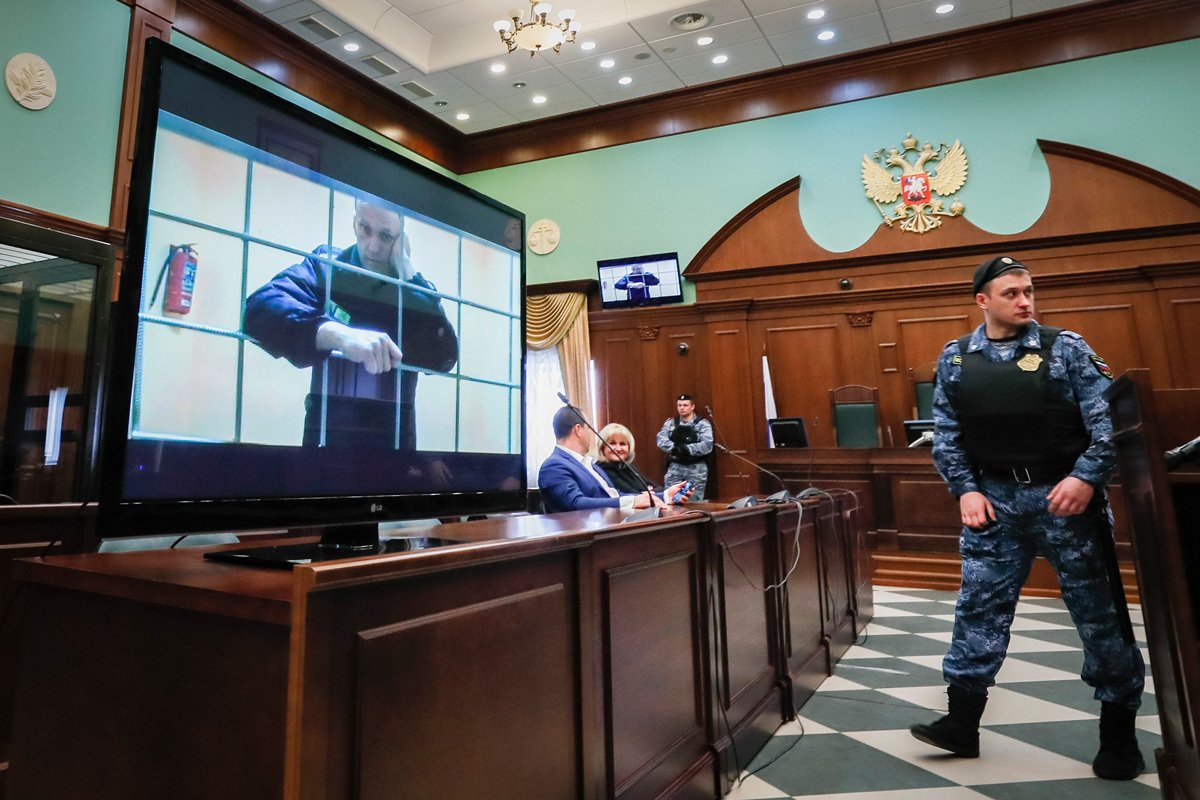Navalny's last two years: Over 1,120 days behind bars, including 300+ in punishment cell
Death of Navalny

According to the Federal Penitentiary Service (FSIN) of the Yamalo-Nenets Autonomous Okrug, politician Alexei Navalny died in a correctional facility on February 16. The department stated that he felt unwell after a walk and lost consciousness.
The propaganda channel RT reported that the politician allegedly suffered a blood clot. Baza reported that Navalny fell ill around 13:00 local time (approximately 11:00 Moscow time), and despite medical intervention, he passed away at 14:17. Navalny had previously disclosed that he was taken out for walks at 6:30 in the morning as per punishment cell regulations. The Public Monitoring Commission of the Yamal-Nenets Autonomous Okrug asserts that Navalny had not made any health complaints.
Three years ago, Navalny returned to Russia after being poisoned with Novichok and receiving treatment in Germany. Subsequently, he was immediately incarcerated, first in a pre-trial detention center and then in a correctional facility.
For further details on Navalny’s experiences over the past two years, refer to the article in “Novaya Gazeta Europe”.
Lawsuits
The day before, on February 15, Navalny participated via video link from the correctional facility in a hearing regarding one of his cases.
In the video recording of the session, the politician appeared healthy and was seen laughing. Consequently, the court dismissed the claim.
Navalny had initiated several lawsuits against the correctional facility due to violations of his rights. The politician and his legal team had made numerous appeals to the courts, citing complaints about the detention conditions in the facility. These included objections to regulations allowing only 15 minutes for meals, restrictions on possessing more than two religious books in a cell, and one in a punishment cell, as well as regular placements in the punishment cell.
During a recent hearing concerning a complaint about the prohibition of family visits, Navalny mentioned that 18 letters, including ones from his wife and daughter, were withheld from him due to “censorship.” The confiscation of these letters was justified by alleged extremism content.
Navalny’s associates emphasized, “He hasn’t seen his wife or children for a year and a half, and he hasn’t been able to make phone calls for about the same duration.”

Punishment cells and correctional facilities
Navalny spent over three years in prison. On February 14, he was transferred to a punishment cell, marking his 27th time in such confinement, totaling approximately 300 days.
Reasons for his placement in the punishment cell included incidents such as “misrepresentation of identity,” “regularly unbuttoning the top button of his robe,” refusal to perform tasks such as “washing the fence” while in an industrial zone, inadequate cleaning of the exercise yard, and addressing Detective Officer Lieutenant Neimovich without using his first name and patronymic.
In January 2023, Navalny fell ill while in a punishment cell, experiencing symptoms such as high temperature, cough, and fever. Navalny reported that a fellow prisoner, who had recently spent time in a medical unit treating flu patients, was assigned to him. Navalny expressed concern, remarking that it appeared to be used as a form of biological warfare.
Subsequently, Russian doctors addressed President Vladimir Putin, demanding an end to the mistreatment of politician Alexei Navalny and urging for necessary medical attention: “The conditions of Navalny’s detention and his physical state greatly concern us regarding his life and health.” A few days later, lawyer Vadim Kobzev disclosed that Navalny had started receiving antibiotics while in the punishment cell.
By early February 2023, Kobzev specified that Navalny had been administered “massive doses” of antibiotics, resulting in stomach complications and a weight loss of 7 kg.
Towards the end of September, Navalny was transferred to a single-cell confinement facility (EPKT) for a year, characterized by the strictest conditions among all colony types, representing the most severe form of isolation.
In early December, Navalny went missing, leaving his associates and relatives unaware of his whereabouts. Concurrently, his press secretary, Kira Yarmysh, revealed that shortly before his disappearance, Navalny fell ill in his cell, experiencing dizziness and collapsing on the floor. Yarmysh added that colony staff promptly responded, adjusting the bed, laying Navalny down, and administering an intravenous drip.
“We don’t know what caused it, but considering he was deprived of food, confined in a punishment cell without ventilation, and had minimal time for walks, it appears he fainted due to hunger. Following the incident, Alexey was seen by his lawyers and appeared to be relatively fine,” the press secretary stated.
On December 25, Navalny’s team announced that the opposition leader was located in IK-3, the Polar Wolf colony, situated in the Yamalo-Nenets Autonomous Okrug, one of the most remote and northernmost detention facilities in Russia.
The following day, Navalny penned his first letter from the new colony, describing the preceding 20 days in prison as “rather exhausting” and reassuring: “Don’t worry about me. I’m fine.”

Poisoning and return to Russia
In August 2020, Navalny fell ill after being poisoned. The politician experienced discomfort during a flight from Tomsk to Moscow, leading to an emergency landing in Omsk. Several days later, on August 22, he was transferred to the German Charité clinic. Independent laboratories in Germany, France, and Sweden confirmed that Navalny had been poisoned with a substance from the Novichok group; these findings were later endorsed by experts from the Organization for the Prohibition of Chemical Weapons.
On January 17, 2021, Navalny returned from Berlin to Moscow. Crowds of supporters awaited him at Vnukovo airport, but the flight redirected to Sheremetyevo Airport shortly before landing. Navalny was detained during border control and subsequently sent to a pre-trial detention center.
In March 2022, Navalny received a nine-year prison sentence on charges of fraud and contempt of court. Additionally, he faced prosecution in the Yves Rocher case, resulting in a three-and-a-half-year sentence for fraud and money laundering involving the Russian division of a French cosmetics company.
In August, the Moscow City Court sentenced Navalny to 19 years in a high-security prison for allegedly forming an “extremist group.” During the verdict announcement, colony staff barred Navalny’s parents, Lyudmila and Anatoly, from entering the courtroom.
In early December, Navalny disclosed the initiation of a new criminal case against him, citing charges of vandalism driven by hatred under Part 2 of Article 214 of the Criminal Code, though the specific reason remained undisclosed.
Additionally, Navalny faced accusations under various articles, including charges related to establishing NGOs that allegedly infringed on citizens’ rights and creating extremist groups. Prosecution extended to Navalny’s activism through his funds and headquarters, with allegations of financing violations due to donation fees. He also faced charges of “inciting extremism” over tweets from a former Anti-Corruption Foundation (FBK) member regarding journalist Irina Slavina’s self-immolation. Navalny was accused of involving minors in his rallies, leading to charges under the relevant article. Furthermore, he was charged with writing an article on “rehabilitating Nazism” following a collage created by the Volgograd headquarters depicting the monument “The Motherland Calls!” vandalized with green paint after an attack on Navalny.
Death of Navalny


















